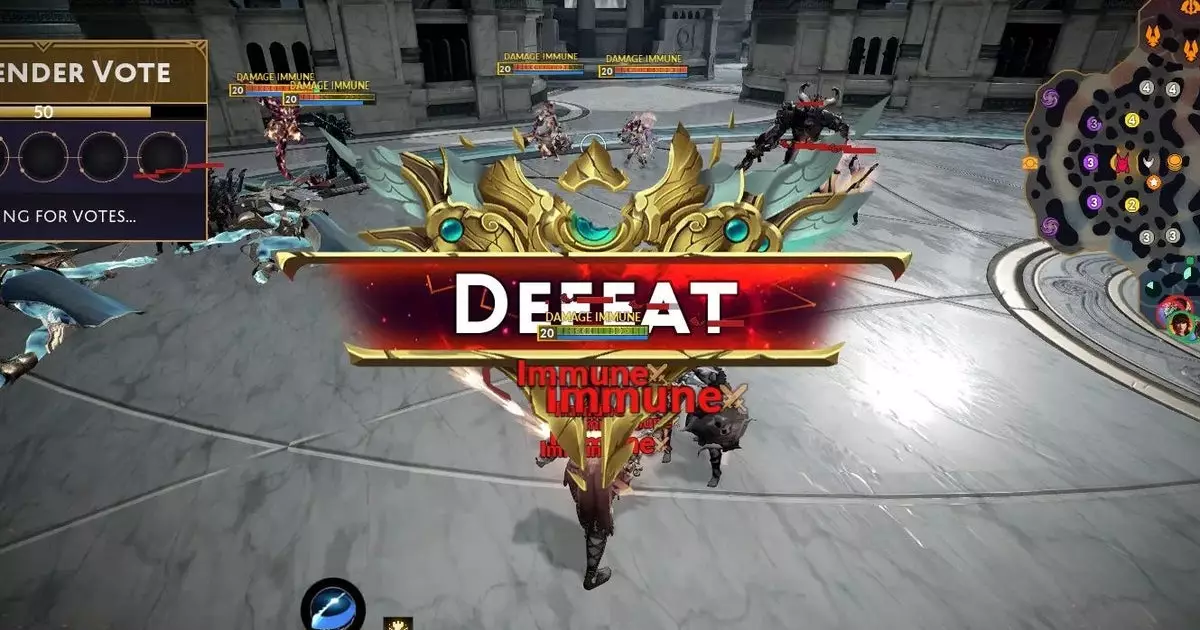In the unpredictable landscape of the gaming industry, few narratives capture the tension of ambition and consequence quite like the recent layoffs at Hi-Rez Studios. Just a month after the launch of the free-to-play beta for their eagerly anticipated MOBA sequel, Smite 2, Hi-Rez appears to have made a series of drastic cuts, laying off a significant number of employees. These layoffs, estimated to be between 20 and 60 individuals, come amidst a broader strategy to streamline focus on Smite 2, putting longstanding titles like Smite, Paladins, and Rogue Company in a precarious position.
While Hi-Rez Studios has not publicly confirmed the precise number of layoffs, various sources, including a Reddit thread populated by former employees, have suggested that as many as 23 individuals directly impacted were from diverse roles such as programming, art, quality assurance, marketing, and production. This discontinuation of personnel seems designed to realign resources strategically in an attempt to foster the sustainability of Smite 2. Hi-Rez’s management insists that these changes will enable a steady stream of new content for their latest offering, but the dramatic reduction of staff raises questions about the studio’s overall health and future plans.
The timing of these cuts is particularly notable. Just four months prior, a similar wave of layoffs had impacted the studio, signaling an ongoing trend of instability. The pattern reveals a troubling trajectory, as Hi-Rez appears to be shedding talent even while investing heavily in a product that, according to critical reviews, has yet to dazzle gaming audiences. It’s a classic case of a company with ambitious goals facing the harsh reality of operational limits and market dynamics.
What remains particularly distressing for loyal fans is the fate of Hi-Rez’s existing games. Both Paladins and the original Smite will continue to run, but with no further updates planned, players are left in limbo. As Hi-Rez clarifies, it intends to maintain servers and existing content, allowing loyal players to enjoy the games, albeit without any new developments or enhancements. This signals a potential stagnation for series that have historically benefited from content updates and community engagement.
The long-term implications for these franchises may be severe; without the creative input from dedicated teams, the risk of disbandment grows, rendering popular titles mere relics of their former selves. The loss of updates typically suggests a decline in player interest over time, especially in a democratized gaming environment where competition is fierce.
The developments at Hi-Rez reflect broader trends within the gaming industry which has become increasingly susceptible to market fluctuations and changing consumer tastes. Firms seeking to streamline operations in reaction to challenging market conditions often fall prey to the illusion that reducing workforce can solve deeper, systemic issues. This approach scarcely considers inequities faced by employees and teams whose efforts contributed significantly to a studio’s past successes.
Notably, in an era where the games industry has faced backlash over the treatment of its workforce, from poor job security to mental health challenges, Hi-Rez is not alone in its struggles. Other high-profile companies like BioWare have also faced scrutiny for opaque practices surrounding job security and layoffs. The lack of transparency only further alienates fans and future talent.
The recent layoffs at Hi-Rez Studios serve as a cautionary tale within the gaming industry, highlighting the fragility of success amid economic pressures and audience expectations. As Hi-Rez pushes forward with Smite 2 in an effort to secure a place in a competitive market, it finds itself at a crossroads. Balancing ambitious development with prudent workforce management presents a monumental challenge, and the outcomes of these decisions could reverberate far beyond the studio’s walls. The ongoing evolution of the gaming landscape remains as volatile as ever, leaving both employees and fans questioning what comes next.


Leave a Reply